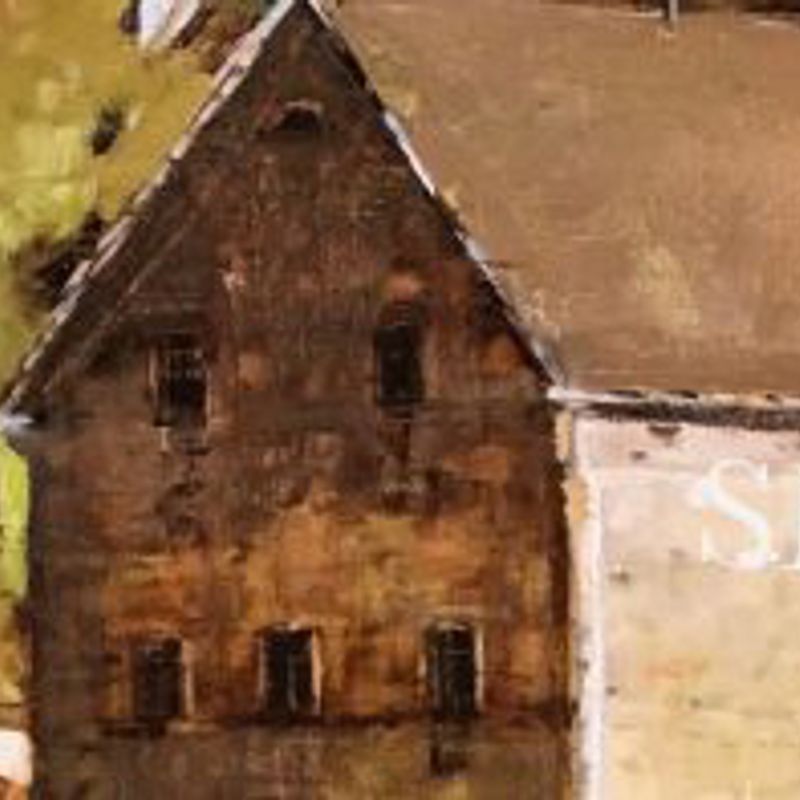Three Scenarios in Which Hana Sasaki Grows a Tail
by Kelly Luce[audio:http://shanendoah.wpenginepowered.com/612/files/2011/08/Three-Scenarios-Luce.mp3|titles=Three Scenarios in Which Hana Sasaki Grows a Tail]
I. It is her thirtieth birthday. She wakes alone.
Her right hand reaches around to feel a soft length of hair that wasn’t there when she took her bath the night before.
She shuffles to the full-length mirror, cranes her neck. The tail is three inches long, and gleams silver with a lavender tinge, one end thin and flyaway, the other thick as rope. It sprouts from the asymmetrical dark button at the base of her spine—what her mother used to call her Hydrangea Mole. Her mother loved hydrangeas, but Hana found them a bit over-the-top. Hana prefers tulips.
She slides her palm beneath the tail and runs her thumb over the strands. Such softness, it’s like a baby’s chubby arm. The phone trills; her mother’s nasal sing-song tells the answering machine to keep a positive outlook; women far older than thirty are marrying nowadays.
Trembling, Hana steps into the shower. It’s too early to call a doctor and though the tail feels odd, it’s not exactly painful, and she can’t justify the expense and time of an emergency room visit. Water rolls down her back and soaks the bundle. It is thin, dark gray when wet, and the hair at the base rises out slightly from her back before wilting and following the curve of her bottom. She hesitates, then dabs shampoo into her palm and brings both hands behind her back: lather, rinse—and, why not?—condition. She lets the conditioner sit for three minutes before rinsing with cold water. Cold water will close the hair shaft and make for a silkier finish. Perhaps later she can braid it, dress it up with ribbon. She will care for it as only she can.
II. Hana has worked at the Asakusa Station Mister Donut for three years.
Sometimes, when business is slow, Hana calculates the number of possible destinations a person could attain with just two steps—the step on a train, and the one off. Thirty-five platforms, each servicing two or three lines, each line hitting ten to twenty stops, depending on the time of year, week, and day…. But Hana only visits platform 23, where the brown line collects and deposits her daily, to and from the thin-walled apartment she shares with her parents.
In the morning the faces that place orders are alert but by evening they sag, as if the population ages as the sun crosses the sky. But the next morning those expectant faces are back, ready for fresh fuel, slightly edited versions of the person they’d been the day before. Does she change, too? She feels no evidence of it. Sometimes she gets the sensation that time has frozen for her only, a glitch in relativity, as if she’s observing herself from a great distance.
She arranges a tray of the store’s signature donut, a plain cake ‘O’ with a baked-on handle for dipping in coffee. The donuts have tails, she thinks.
A man in a suit orders four of these signature donuts and slides the money over the counter atop a thick envelope. She makes change. When she looks up, he’s gone. He’s left not only his money, but the envelope, too. She picks it up and out spill photographs—of her.
She examines them, sharp corners pricking her palms. In each photo, she stands behind this very counter, wearing this red apron, hair tucked behind her ears, as it is now.
She twitches and slaps at her lower back; something has gotten into her waistband—a flea, maybe.
III. Little Hana has just gotten over the chicken pox. To celebrate, her doting parents take her to the Ueno Zoo to see the red pandas, which their local zoo does not feature.
Hana does not like the Ueno Zoo. It is big, crowded, and the animals look upset. Hana wonders if the angry gorilla pounding at the glass is contagious, like her sickness. Contagious, she knows, means giving something bad to someone else, even if they don’t want it. That was how she got those chicken pox, and how she got rid of them. She clings to her mother, whimpering, worried that getting too close to a hideous, wrinkly grandma will make her ugly and old, too.
They leave the zoo. Father even springs for a taxi. As they stand on the street awaiting an available cab, a rat scrambles out of a trash bin and across Hana’s pink sneakers. The child is inconsolable all the way home, and Father must bribe the taxi driver to bring them the entire way.
The next day, it’s just as Hana expects: the pink, skinny, hairless tail sticks out just above the elastic on her underwear. She grits her teeth and summons contagion.
